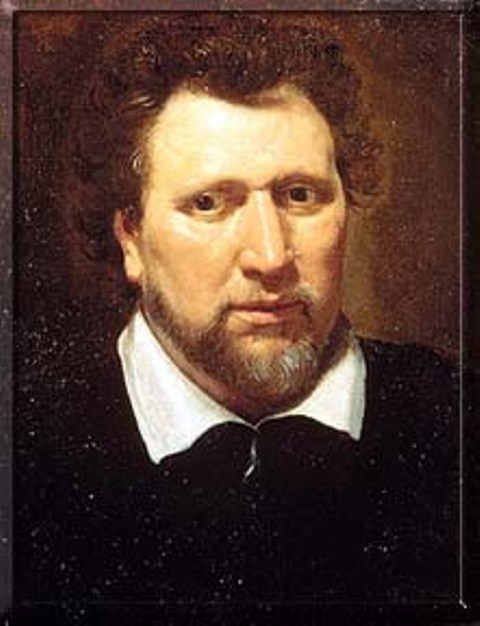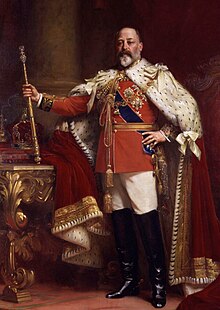Jacobean Age (1603 - 1625)
العصر اليعقوبي

This was certainly the age of prose writing and
Donne and Bacon were christened as propellers of doctrines proposed by them.
Shakespeare with his tragedies and tragicomedies made an impact with the other
notable playwrights such as Chapman, Burton, Beaumont and Fletcher.
Caroline Age (1625 - 1649)

This was the time when John Milton along with
melancholy centric writers Burton and Browne composed prose and plays. It was
also an era where the religious poet George Herbert concentrated on poetry on
gallantry, courtship and courtly love.
Commonwealth Period (1649 - 1660)
-600-300-pzYK.GJA7GYAAAEv0df8kstu.jpg)
Puritan Interregnum was an alternative term used
for this era. The commonwealth age saw writers like Cowley, Marvell and
Davenant. It was an age where Milton portrayed his prowess in political
subjects and Hobbes' distinguished his writing style in the form of political
treatise called Leviathan.
Neoclassical Period (1660 - 1785)

The neoclassical period was an institution of
poets where the light of knowledge acquisition with discipline and respect was
given an overwhelming importance. With neoclassic poetry, the subjects had the
elements nature as its background. The restoration period marked an influx of
theater where William Wycherley and George Etherege developed a genre of Comedy
of manners. The Country Wife, William Wycherley's play centered around the
nuances of bawdy language and semi-aristocratic flavor that delivered the
eccentricities of characters with their names suggesting their counter
characters, thus the play is allegorical with a completeness of its own. The
Augustus age novelist and journalist Daniel Defoe and Lady Mary Wortley wrote
poems of wit, candor and conviction.
Romantic Period (1785 - 1832)
The romantic period had its origins in
spontaneity and quick wit. It was an age that lay stress on nature and deemed
nature not as the background but the backbone of poetry. The romantic period
had experimentation and invention running through the veins of poetry. Poets
like Keats, Shelley, Burns, William Blake, Coleridge and Wordsworth made a
significant and radical impact on the face of poetry. It was an era where
universe and nature were considered in the forefront of all the human
nitty-gritty as the background of poetry.
Victorian Period (1832 - 1901)
The Victorian period had melancholy and mourning
as its corner stones where poetry is concerned. Tennyson and Elizabeth Barrett
Browning were notable poets who focused on subjects of death and unconditional
love and longing. This period also dealt with imaginative, often didactic
verses composed that reflected on the socio-economic context in detail. Samuel
Butler, Thomas Hardy, William Thackeray and Gerard Manley Hopkins were the
notable authors and essayists who made their mark in this period of English
literature.
Edwardian Period (1901 - 1914)
The span where the Victorian period ended and the
World War I began marked the reign of King Edward. This was the period where
Thomas Hardy gave up on writing novels for the love of poetry, William Butler
Yeats and Rudyard Kipling made a name of their own in the field of poetry.
Another coveted and well established playwright was Henry James who published
his novels in the Edwardian era. These were The Wings of the Dove, The
Ambassadors and The Golden Bowl.
Georgian Period (1914 - 1936)
The Georgian period saw a group of writers
denoted as Georgian poets who focused on rural subjects that were delicate to
handle. They were subjects that were not regarded as bold and too ferocious in
nature. The major characteristic was the poetry being submissive and more
traditional in manner rather than rough, experimental and technical in pace and
matter. Walter de la Mare and W.H. Davies were some of the poets that were
regarded as Georgian poets.
Modernism and Postmodernism (1939 - ...)
Modernism and postmodernism are terms that have
undergone relative change in the recent past. The modern poets include Yeats,
Auden, T.S. Eliot, Franz Kafka amongst the many notable poets and authors.
Modern period of English literature was marked by a new style, format,
mis-en-scene, concept and the relative features of the subjects in question.
Virginia Wolf's, a stream of thought writer, Jacob's Room and James Joyce's
Ulysses were monotone narratives that signified the rapidity with which
innovation in poetry occurred.
Postmodernism is an era in which the individual
has to look beyond the obvious, draw parallels with reality with absurdity and
overt projection of sexuality has been made prominent. Postmodernism marks R.K.
Narayan, Anita Desai, Salman Rushdie, Arundhati Roy as writers who have their
very own signature, post colonial ways of writing and projecting their thought
in their unique ways.
English Literature is a treasure trove, that must
be unearthed, for literature enthusiasts are perpetually mulling over the
legacy, such stalwarts of the language have managed to define. Their genius,
indeed, is indefinable - almost an embarrassment of the riches!






0 comments:
Post a Comment